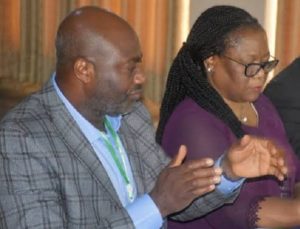The Society for Planet and Prosperity (SPP), in close collaboration with the Department of Climate Change (DCC) of the Federal Ministry of Environment in Abuja, has announced plans to officially launch the rating and ranking of the climate governance performance of Nigeria’s 36 states in July 2024.

The statement was made on Thursday, June 13, 2024, at the inaugural coordination meeting of climate change desk officers from Nigerian states, which was convened by the DCC.
SPP President, Prof Chukwumerije Okereke, while presenting the state of play of the rating and ranking project, said the project builds on the mapping of the climate change impact, policy, and action of the states, which was executed by the team last year in collaboration with the DCC and the Nigeria Governors Forum (NGF).
He said the current project would provide a single rating and ranking report of the performance of the 36 states of Nigeria.
Professor Okereke said the rating and ranking were done based on five governance criteria, namely, (i) climate change governance administrative structure, (ii) presence or absence of climate policy and action plan, (iii) extent of climate change project implementation; (iv) extent of incorporation of climate finance in state budgets; and (v) online visibility of state’ climate activities.
Professor Okereke said the ranking and rating exercise is based on the responses provided by States Commissioners, Permanent Secretaries, and Climate Desk Officers across the 36 states, as well as extensive independent verification done by the research team and the Department of Climate Change staff.
Professor Okereke said he was confident that this rating and ranking exercise would raise awareness of climate in the states and create an atmosphere of positive competition and a race to the top among the states, consistent with what he has seen in other countries where such projects have been done.
Professor Okereke stated that the states with the highest-ranking scores would be recognised during the report’s launch, which is expected to be held in the last week of July.
During his keynote address, Mahmud Adam Kambari, Permanent Secretary of the Ministry of Environment, expressed his delight at the official launch of the Subnational Coordination Meeting on Climate Change, stating that climate change is a major emergency and one of the most pressing issues of our time.
He underlined the fact that the purpose of the coordination conference is to strengthen the synergy between national and subnational actors in order to achieve better climate governance in the country in line with the Presidential Transformative Agenda of the President.
The Permanent Secretary described subnational climate change officers as key personnel in the fight against climate change, given their role in translating global climate goals into concrete actions and policies that resonate at the local level.
Dr. Iniobong Abiola-Awe, Director of the DCC, while presenting the Terms of Reference (TOR) of the subnational coordination meeting, highlighted the key objectives of the meeting to include improving collaboration and knowledge sharing among Subnational Climate Change Desk Officers, promoting effective climate change action at the subnational level, and targeted training and capacity building of the desk officers.
Dr. Abiola-Awe urged climate change desk officers to be responsive and on time at all meetings, as they are expected to attend and offer updates on climate change initiatives, successes, problems, and lessons learnt in their respective regions during the monthly sessions.
In closing, Prof Okereke congratulated the DCC Team on the successful coordination meeting of Climate Change Desk Officers from Nigeria’s 36 states, which he said will have a massive impact in helping to align state climate action with national climate priorities and objectives.
By Michael Simire and Wole Adegbule
